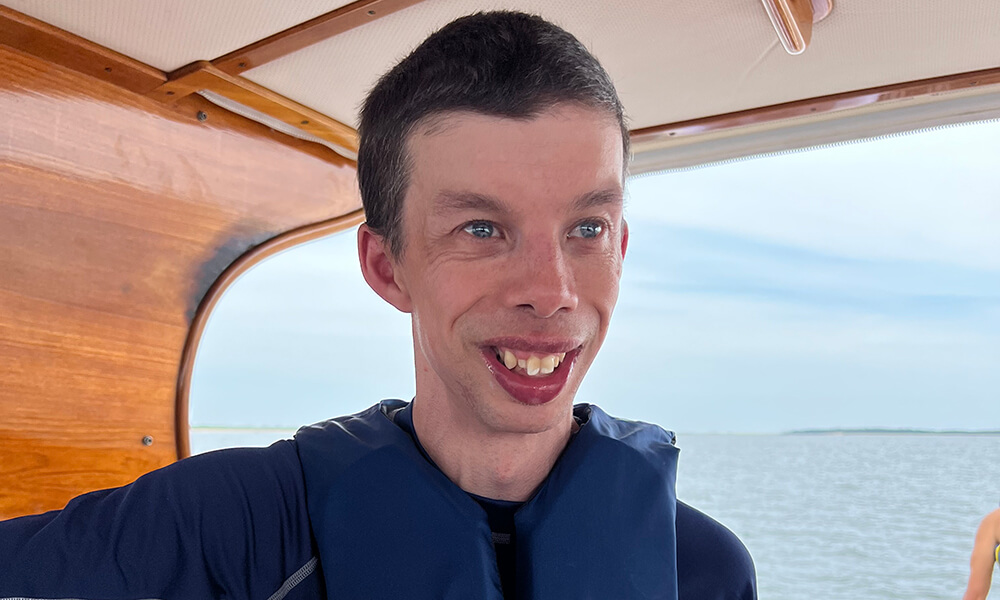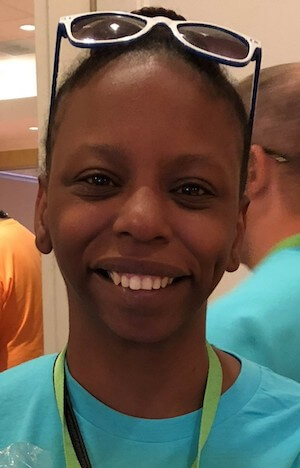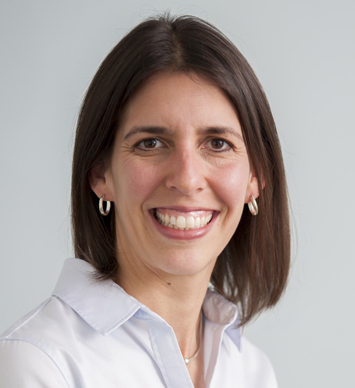Williams Syndrome Program


Contact Information
Mass General Williams Syndrome Program
1 Maquire Road
Lexington,
MA
02421
Phone: 781-860-1720
Fax: 781-860-1766
Upon outreach to the Program, a Program Coordinator will field all inquiries and connect patients, families, and providers to the relevant services offered by the Williams Syndrome Program. We will assist with the coordination of multiple specialist visits (especially out-of-state patients) and help answer insurance questions.
Dr. Barbara Pober, Clinical Geneticist can also be reached at:
Genetics and Metabolism Program
175 Cambridge St., 5th Floor
Boston, MA 02114
Phone: 617-726-1561
Fax: 617-726-1566
Explore This Program
Overview
The Massachusetts General Hospital (MGH) Williams Syndrome Program offers comprehensive, across the lifespan multi-disciplinary clinical services, patient resources, and research opportunities. The MGH Williams Syndrome Program is a cross-disciplinary collaboration between the MGH main campus in downtown Boston and the MGH Lurie Center in Lexington, MA.

Specialist medical providers (including but not limited to the areas of medical genetics, psychiatry, and cardiology) have significant knowledge of and experience working with individuals with Williams syndrome. In addition to delivering pre-eminent clinical care, a dedicated social worker is available to offer support, guidance, and resources to adults and children who have been referred by a MGH Williams Syndrome Provider. Our Program Coordinator informs families about services that take place under the “umbrella” of the program. The Program Coordinator can also assist with coordinating patients’ care and scheduling across multiple medical providers, as needed. Thanks to generous philanthropy, there is no charge for the services of either the social worker or the Program Coordinator.
As part of our commitment to help each person with Williams syndrome optimize their health and well-being, we also offer participation in cutting edge medical and behavioral research.
Related Programs
- Lurie Center for Autism
- Pediatric Cardiology
- Pediatric Endocrine Program
- Adult Congenital Heart Disease Program
- Medical Genetics
Clinical Services
Over the past few decades, a great deal has been learned about growth and change in persons with Williams syndrome and that it is important to provide proper support and care to optimize physical and emotional health. Each person with Williams syndrome who receives clinical care at the MGH Williams Syndrome Program is seen initially by at least one of two providers representing our "core” specialties: medical genetics and psychiatry. Additional visits with other specialists (such as cardiology, dentistry, endocrinology, educational assessment, and behavioral consultation) are then tailored to the patient’s needs and treatment goals. Depending on the specialist and where the patient resides (within Massachusetts or outside the state of Massachusetts), the provider may offer either an in-person clinic appointment or a virtual telehealth appointment.
Adults with Williams Syndrome

Navigating the path to adulthood can be challenging for many, including for individuals with Williams syndrome. Building on the strong foundation of lifetime care for persons with Williams syndrome that already exists at MGH, we are now further strengthening the scope and quality of services for adults with Williams syndrome. This has been made possible by the generosity of the Bernon family; their substantial gift is helping the MGH Williams Syndrome Program grow and fill gaps in care encountered by many adults with Williams syndrome. Our MGH Williams Syndrome Program Coordinator helps local and out of state families coordinate multidisciplinary appointments and assists with insurance questions and travel advice. Our Williams Syndrome Program Social Worker provides guidance and resources on many common topics faced by young, middle-aged, and elder adults with Williams syndrome, such as: guardianship, long-term residential options, daytime programs, navigating Department of Developmental Services (DDS), financial planning, accessing mental health services, healthy aging, and more.
How to Visit Us
 Contact our Program Coordinator at 781-860-1720 or Email: MGH_Williams_Syndrome_Program@mgb.org
Contact our Program Coordinator at 781-860-1720 or Email: MGH_Williams_Syndrome_Program@mgb.org
To learn more about the Program, our providers, and the types of appointments that are available please contact the Williams Syndrome Program Coordinator at 781-860-1720. Our Program Coordinator can also assist if a family or caregiver wants to coordinate appointments with multiple providers on a single day or, for those traveling to Boston from out of town, over two-three days.
If you have questions about which provider is best suited to evaluate your loved one with Williams syndrome, please contact our Program Coordinator, who will consult with the Williams Syndrome Program Co-Directors and then advise you.
If you are making a new or a follow-up appointment with a specific provider, please call the appointment phone number for the specific provider’s office listed in the Meet Members of the Team section.
Meet Some Members of the Team
We have forged long-term relationships with many of our patients because we provide seamless care across the lifespan in numerous specialties. Many providers at MGH have experience working with children and adults with Williams syndrome and below is a “snapshot” of some of them.
Williams Syndrome Program Core Team
-
![]()
- Attending Physician, Division of Medical Genetics & Metabolism
- Co-Director, MGH Williams Syndrome Program
- Professor of Pediatrics (Emeritus) Harvard Medical School
-
![]()
- Psychiatrist, Lurie Center for Autism
- Co-Director, MGH Williams Syndrome Program
- Assistant Professor, Harvard Medical School
-
![]()
- Director, MGH Adult Congenital Heart Disease Program
-
![]()
- Director, Lurie Center for Autism
- Nancy Lurie Marks Professor of Psychiatry, Harvard Medical School
Williams Syndrome Program Lurie Center Team
-
![]()
- Behavioral Director, Angelman Syndrome Behavioral Clinic
- Staff Psychiatrist, Lurie Center for Autism
- Assistant Program Director, Multidisciplinary Clinic for Children, Adolescents & Adults w/ Autism Spectrum Disorder
-
![]()
- Licensed Psychologist
- Assistant in Pediatrics, Department of Pediatrics, MGH
- Instructor, Department of Psychiatry, Harvard Medical School
-
![]()
- Senior Behavioral Consultant
MGH Specialists
Below are some of the MGH specialist consultants who have worked with children or adults with Williams syndrome
-
![]()
- Chief, Division of Pediatric Cardiology
-
![]()
- Director, Ophthalmology Emergency, Consult, and Hospitalist Services
- Director, Mass. Eye and Ear, Stoneham
-
![]()
- Lurie Center for Autism
- Instructor, Harvard Medical School
-
![]()
- Chief, Division of Comprehensive Neurology
- Senior Clinical Neurologist, MGH Dept of Neurology
-
![]()
- Medical Director, Yawkey 4 Outpatient Gynecology
-
![]()
- Chief, Pediatric Pulmonary Unit
- Associate Chief for Education
- Director of Pediatric Sleep Program and Pediatric Cardiopulmonary Exercise Laboratory
-
![]()
- Department of Dermatology
-
![]()
- Chief, Division of Dentistry
- Instructor, Harvard School of Dental Medicine
-
![]()
- Assistant in Pediatrics
- Instructor, Harvard Medicine School
-
![]()
- Chief, Mass General Brigham Children's Orthopaedics
- Pediatric Orthopaedic Surgeon
- Assistant Professor of Orthopaedic Surgery, Harvard Medical School
-
![]()
- Chief, Oral and Maxillofacial Surgery
- Chair, Oral and Maxillofacial Surgery, Harvard School of Dental Medicine
- Co-Director, Cleft and Craniofacial Clinic, Mass General Brigham for Children and Shriner?s Hospital for Children
-
![]()
- Assistant Professor of Obstetrics, Gynecology and Reproductive Biology at Harvard Medical School.
- Medical Director, Resident Gynecology Practice
-
![]()
- Assistant in Pediatrics
- Assistant Professor of Pediatrics Harvard Medical School
- Fellow of the American Academy of Pediatrics
-
![]()
- Chief, Pediatric Endocrinology
- Associate Pediatrician, Massachusetts General Hospital
- Associate Professor of Pediatrics, Harvard Medical School
-
![]()
- Pediatric Nephrology
-
![]()
- Endocrinology
- Department of Medicine
-
![]()
- Director, Bone Density Center
-
![]()
- Medical Director, Pediatric Neurogastroenterology Program
- Instructor, Harvard Medical School
MGH Williams Syndrome Program Staff
Agnes Woodlock, MBA, MSW, LICSW
Williams Syndrome Program Clinical Social Worker
Phone: 781-860-1720
Princess M. Fenton
Patient Services Coordinator, Genetics
Phone: 617-726-1561
Fax: 617-726-1566
Program Coordinator, Williams Syndrome Program
Phone: 781-860-1720
Fax: 781-860-1766
Patient Resources
The informational resources below are a variety of national and regional resources, primarily MA based. We will continue to add resources as we learn of them.
For Children
For Adults
- Williams Syndrome Association
- Department of Developmental Services (DDS)
- Guardianship
- Lurie Center guardianship workshops
- Guardianship & Conservatorship in MA | Mass.gov
- Massachusetts | Supported Decision Making
- Legal Planning for Special Needs in Massachusetts (book by Attorney Barbara Jackins)
- Special Needs Planning Guide - 2nd Edition (book by Cynthia Haddad & John Nadworny/ Affinia Financial Group)
- Transportation
- The RIDE (Greater Boston area paratransit)
- GATRA (Southern/South Shore MA paratransit)
- MassHealth PT-1 (for MassHealth subscribers)
- Day/Support Programs
- Residential/Supportive Living
- Vocational Supports
- In-home supports
- Individual/Community-based supports
- Respite Services
- Activities
- Other Comprehensive Resource Agencies & Organizations
News & Events
Past Events
Feeding, Eating, and GI Issues across the Lifespan
September 13, 2025
Expert sessions for parents/caregivers of persons with WS of all ages.
Watch recordings of Session I, Session II, and Session III
Common Issues in Children with Williams Syndrome: Challenges & Solutions
September 21, 2024
The MGH Williams Syndrome Program Co-Directors, Dr. Barbara Pober and Dr. Robyn Thom hosted an educational afternoon for parents of children with Williams syndrome. The event was made possible through a generous gift from the Anthony Filippazzo Fund for Williams Syndrome Research and Advancement, along with support from the Williams Syndrome Association. See photos, watch the program, and learn more here.
Anne Klibanski Visiting Lecture 10, “Enhancing the detection and treatment of anxiety disorders in autistic youth,” by Dr. Connor Kerns from the University of British Columbia and “Assessment and Treatment of Anxiety in Williams Syndrome,” by Dr. Robyn Thom from MGH Psychiatry - September 13, 2023.
View the webinar recording.
Williams Syndrome Program – “Navigating Adulthood”
June 3, 2023
More than 100 adults with Williams syndrome (WS), their caregivers, and staff from the MGH WS Program gathered at the Lurie Center for the inaugural program family event, “Navigating Adulthood.” This Program was made possible due to the generous support from: The Bernon Family, The Williams Syndrome Association, The MGH Development Office, The Lurie Center for Autism. See photos and learn more about the program here.
Select New Publications on Williams Syndrome from Williams Syndrome Team Members
A Prospective Open-Label Trial of Buspirone for the Treatment of Anxiety in Williams Syndrome
Buspirone for the treatment of anxiety in Williams syndrome: a retrospective chart review study
Fish A, Pober BR, Thom RP. ‘Williams Syndrome’ in Neuropsychiatric Care for Genetic Syndromes and Other Neurodevelopmental Disorders – What Every Clinician Needs to Know. Springer Publishing, In Press.
Liu D, Billington CJ Jr, Raja N, Wong ZC, Levin MD, Resch W, Alba C, Hupalo DN, Biamino E, Bedeschi MF, Digilio MC, Squeo GM, Villa R, Parrish PCR, Knutsen RH, Osgood S, Freeman JA, Dalgard CL, Merla G, Pober BR, Mervis CB, Roberts AE, Morris CA, Osborne LR, Kozel BA. Matrisome and Immune Pathways Contribute to Extreme Vascular Outcomes in Williams-Beuren Syndrome. J Am Heart Assoc. 2024 Feb 6;13(3):e031377.
Thom RP, Canales C, Tresvalles M, McDougle CJ, Hooker JM, Chen Y, Zurcher NR. Link to abstract: Neuroimaging research in Williams syndrome: Beginning to bridge the gap with clinical care. Neurosci Biobehav Rev. 2023 Aug 19; 153:105364. PMID: 37598875.
Shin E, Ravichandran C, Renzi D, Pober BR, McDougle CJ, Thom RP. Link to abstract: Diversity of Participants in Williams Syndrome Intervention Studies. J Autism Dev Disord. 2023 Aug 16. doi: 10.1007/s10803-023-06088-2. PMID: 37584767.
Renzi D, Stanley T, Waxler J, Lee H, Pober B*, Nordstrom M*. Link to article: Body mass index variation in adults with Williams syndrome: associations with predicted dietary intake and food behaviors. Food Nutr Res. 2023 Jun 23;67. doi: 10.29219/fnr.v67.9321. PMID: 37441515 [*co-senior authors].
Medical & Genetic overviews:
Kozel BA, Barak B, Kim CA, Mervis CB, Osborne LR, Porter M, Pober BR. Williams syndrome. Nat Rev Dis Primers. 2021 Jun 17;7(1):42. PMID: 34140529
Stanley TL, Leong A, Pober BR. Growth, body composition, and endocrine issues in Williams syndrome. Curr Opin Endocrinol Diabetes Obes. 2021 28(1):64-74. PMID: 33165016
Sindhar S, Lugo M, Levin MD, Danback JR, Brink BD, Yu E, Dietzen DJ, Clark AL, Purgert CA, Waxler JL, Elder RW, Pober BR, Kozel BA. Hypercalcemia in patients with Williams-Beuren syndrome. J Pediatr. 2016. 178:2540260.e4. PMID: 27574996
Behavioral Health overviews:
Thom RP, Pober BR, McDougle CJ. Psychopharmacology of Williams syndrome: safety, tolerability, and effectiveness. Expert Opin Drug Saf. 2021;20(3):293-306.
Thom RP et al. A virtually delivered adaptive cognitive-behavioral therapy group for adults with Williams syndrome and anxiety. Cognitive and Behavioral Practice. 2022; https://doi.org/10.1016/j.cbpra.2022.02.025.
Thom RP, Keary CJ, Waxler JL, Pober BR, McDougle CJ. Buspirone for the treatment of generalized anxiety disorder in Williams syndrome: A case series. Journal of Autism and Developmental Disorders. 2020. 50(2): 676-682.
Williams Syndrome Research Opportunities
We are as passionate about furthering knowledge of Williams syndrome as we are about delivering superb clinical care. We view research and care, not as distinct entities, but rather as two sides of the same coin; they inform each other and, together, improve the physical and emotional health of children and adults with Williams syndrome.
Williams Syndrome Program team members have already made numerous contributions to knowledge of Williams syndrome through publications in medical literature, teaching, presentations at scientific meetings, and family sessions.
We have clinical research coordinators who support Williams syndrome research studies.
Some currently active research studies
Brain Aging in Williams Syndrome (Principal Investigator: Robyn Thom, MD)
Very little is known about normal brain aging in Williams syndrome. Thus, very little is also known about the relative proclivity and occurrence of age-related brain diseases — i.e., stroke or dementia — in adults with Williams syndrome. The goal of this study is to learn about changes that occur in the brain with a focus on brain blood flow in adults with Williams syndrome compared to adults without Williams syndrome. The study includes an MRI brain scan and a cognitive evaluation. This study is supported by the Mass General Neuroscience Transformative Scholar Award.
Collaborative Registry for Williams Syndrome (CReWS) (Overall Principal Investigator: Wendy Chung, MD; MGH site PI: Barbara Pober, MD)
In an effort to collect large amounts of information over time, families who have a loved one with Williams syndrome are being invited to join CReWS. In addition to collecting online information via surveys, select information will also be abstracted from the medical record of persons with Williams syndrome who receive care at a participating Williams Syndrome Clinic (and MGH is a participating clinic). The ultimate purposes of CReWS are to: learn about the features and symptoms of Williams syndrome, and how they change as people get older; determine the best care and develop therapies; and connect participants to research studies for which they may be eligible. This study is supported by the Williams Syndrome Association.
Some recent active research studies
Characterization of Anxiety in Williams Syndrome (Principal Investigator: Robyn Thom, MD)
Study is closed – stay tuned for study results coming soon. The goal of this study was to better understand the symptoms and impact of anxiety in individuals with Williams syndrome across the lifespan by conducting clinical interviews and questionnaires. We plan to use the results of this research to create clinical tools for improved detection and evaluation of anxiety specific to Williams syndrome. This study was supported by the Williams Syndrome Association Early Investigator Award.
Buspirone for the Treatment of Anxiety in Williams Syndrome (Principal Investigator: Robyn Thom, MD)
Study is closed and findings have been published. See A Prospective Open-Label Trial of Buspirone for the Treatment of Anxiety in Williams Syndrome.
The goal of this study was to learn about the effectiveness of buspirone (an anti-anxiety medication) for anxiety in children and adults with Williams syndrome. All participants were prescribed buspirone and were followed closely for the 16-week study to adjust the dosage of medication, check for side effects, and evaluate anxiety severity. Patients had to be evaluated in-person at the Lurie Center in Lexington, MA for the first visit. This study was supported by the Williams Syndrome Association Early Investigator Award.
Williams Syndrome SHAAPE [Stength, Hormones, Activity and Adiposity, DNA Programming, and Eating] study (Principal Investigator: Barbara Pober, MD)
Study is closed and initial findings have been published. See Body Mass Index variation in adults with Williams syndrome: associations with predicted dietary intake and food behaviors.
The goal of this study was to understand factors that contribute to the wide range of body “shapes and sizes” observed in adults with Williams syndrome. Analyses of differences in body composition, intake of major food groups, resting energy expenditure (so-called basal metabolic rate), and genetic variation is ongoing. This study was supported by the Williams Syndrome Association.
SHAAPE study: Follow-up Focus on Eating and Behavior (Principal Investigator: Barbara Pober, MD)
Study is closed – stay tuned for study results coming soon. Building on the SHAAPE study described above, we examined eating behaviors in adults with Williams syndrome to see if they associate with body shape and size, eating a healthier or less healthy diet, as well as with place of residence, and degree of independence especially surrounding meals. This study is supported by the Williams Syndrome Association.



























